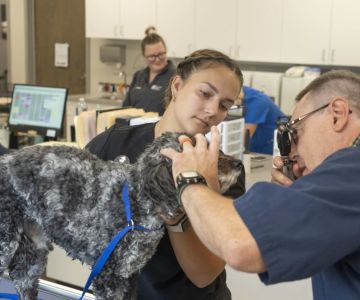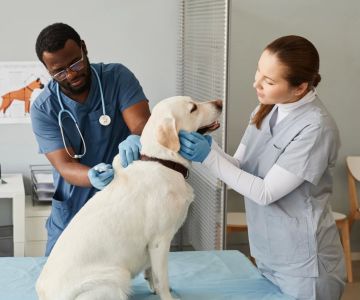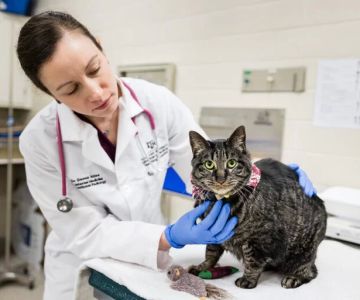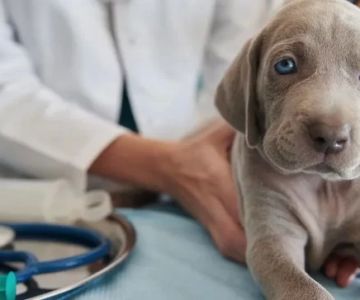What Classes Do You Take to Become a Veterinarian?
- 1-Foundation-Courses
- 2-Advanced-Science-Classes
- 3-Specialized-Veterinary-Courses
- 4-Practical-and-Clinical-Training
- 5-Personal-Experience-and-Stories
- 6-Preparing-for-Veterinary-School
1. Foundation Courses You Should Take
To embark on a path to becoming a veterinarian, foundational courses play a crucial role in building your scientific knowledge. Typically, students begin with general biology, chemistry, and physics to understand the basic principles of life and matter. Animal science is another key subject, helping students familiarize themselves with animal anatomy, physiology, and behavior. These courses establish the groundwork necessary for understanding more complex veterinary topics later on.
Taking rigorous courses in mathematics and English also sharpens critical thinking and communication skills, which are essential for future vets when explaining diagnoses and treatment plans to pet owners.
2. Advanced Science Classes Required in Veterinary Education
As you progress, advanced science courses deepen your understanding of the biological mechanisms relevant to animal health. Organic chemistry is vital for grasping biochemical processes, while microbiology introduces you to pathogens that affect animal populations. Genetics and immunology are also important, equipping you with knowledge about hereditary diseases and the immune system's role in fighting infections.
These courses ensure that aspiring veterinarians develop a comprehensive scientific background, preparing them for the challenging coursework in veterinary school.
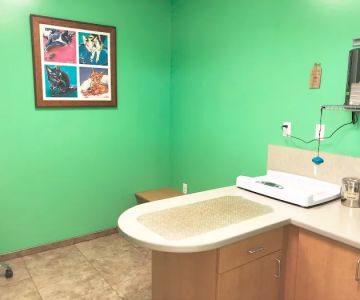
110 Marketside Avenue #203, Ponte Vedra Beach, FL 32081, USA
See Details3. Specialized Veterinary Courses in Veterinary School
Upon entering veterinary school, students encounter specialized courses tailored to animal care. Pathology teaches how to diagnose diseases through tissue and blood analysis. Pharmacology covers drug mechanisms and their safe application in animals. Courses in surgery, anesthesiology, and diagnostic imaging provide hands-on knowledge crucial for clinical practice.
Additionally, students learn about ethics and veterinary law, which are essential for responsible practice. These courses combine theory with practical applications to develop well-rounded veterinarians.
4. Practical and Clinical Training Experiences
Classroom learning is complemented by extensive practical training. Internships, externships, and clinical rotations allow students to work alongside experienced veterinarians in real-world settings. This hands-on experience is invaluable, teaching students how to handle animals safely, perform examinations, and execute treatments.
Many veterinary schools also include research projects, encouraging students to contribute to advances in veterinary medicine. This blend of theory and practice ensures graduates are job-ready and confident.
5. Personal Experience and Stories from Aspiring Veterinarians
Many veterinarians recall how early exposure to animals sparked their passion. One student shared how volunteering at an animal shelter gave them insights into animal behavior and the realities of veterinary work. Another highlighted the challenge of balancing tough science courses with clinical practice but emphasized that perseverance paid off.
These stories humanize the journey, showing that while the path is demanding, the reward of helping animals and their owners is deeply fulfilling.
6. Preparing for Veterinary School: Tips and Recommendations
Successful preparation involves more than just academic excellence. Building strong relationships with mentors, gaining volunteer experience, and developing excellent communication skills all boost your veterinary school application. Planning your course schedule early and seeking advice from current vets or academic advisors can make your journey smoother.
If you’re looking for resources, textbooks, or courses to guide your veterinary studies, consider exploring offerings at Dentistry Toothtruth, which provides tailored products and services that support your educational needs.
Becoming a veterinarian is a challenging but rewarding pursuit. Understanding what classes you need to take and how to prepare effectively lays the foundation for a successful career dedicated to animal health and welfare.


